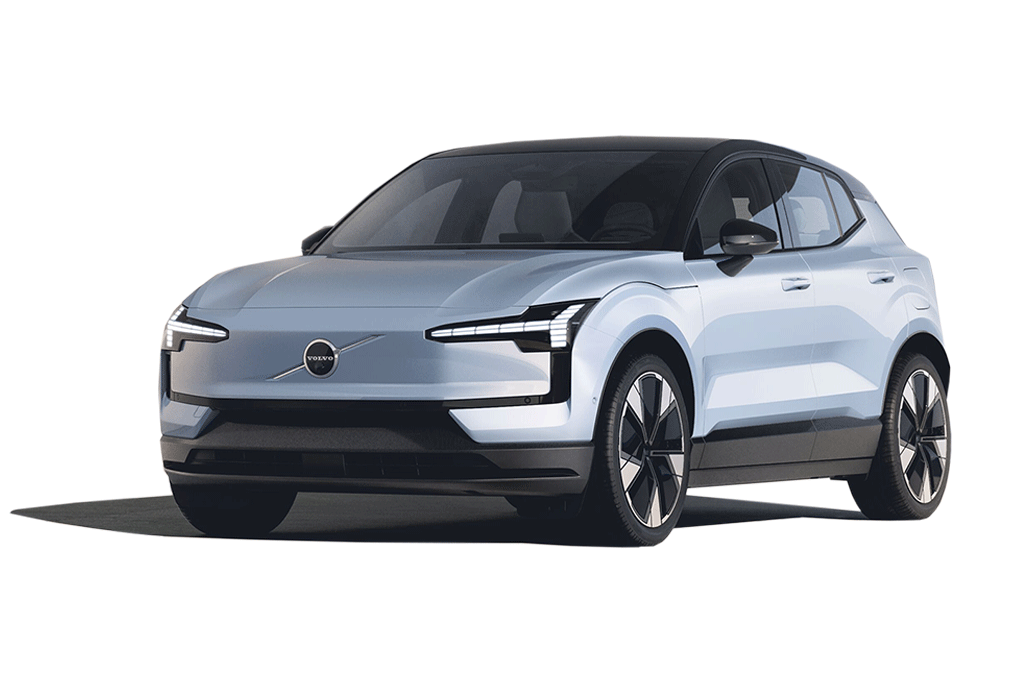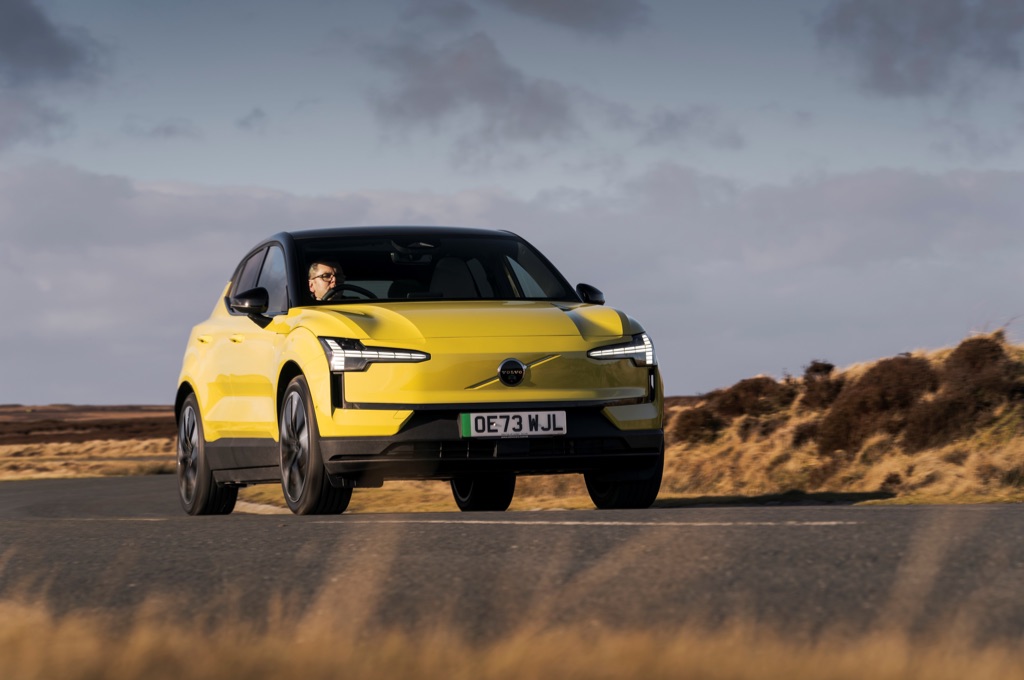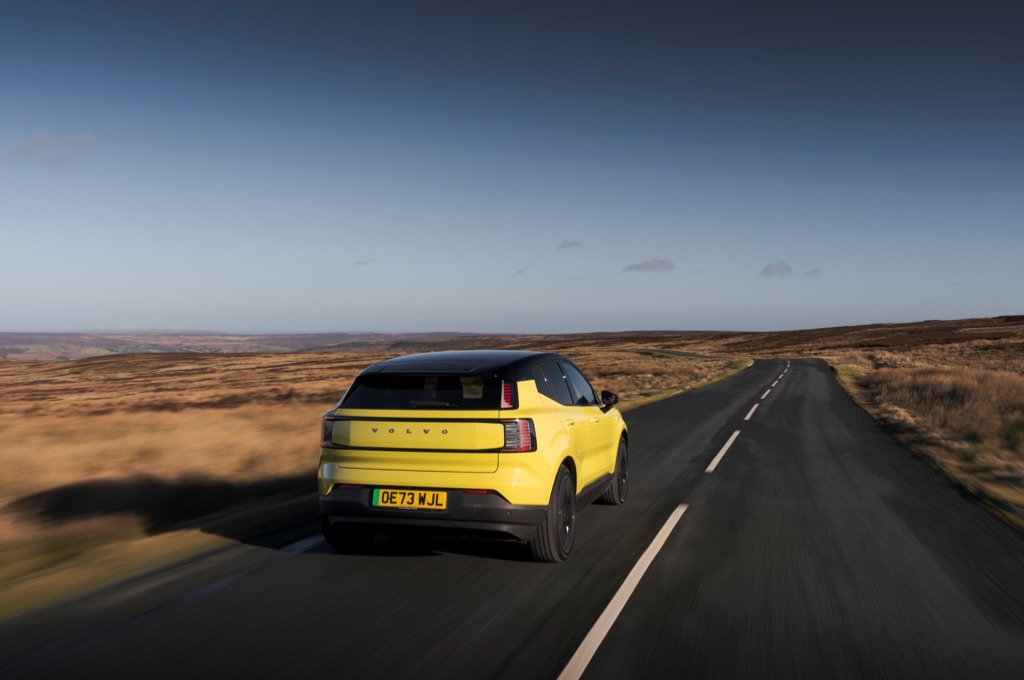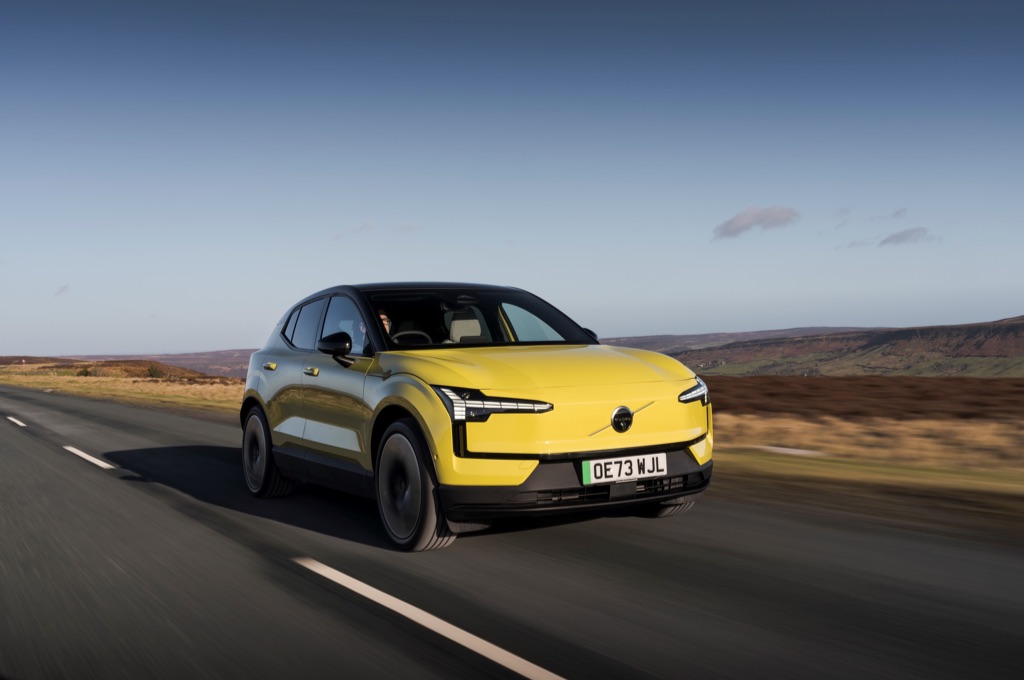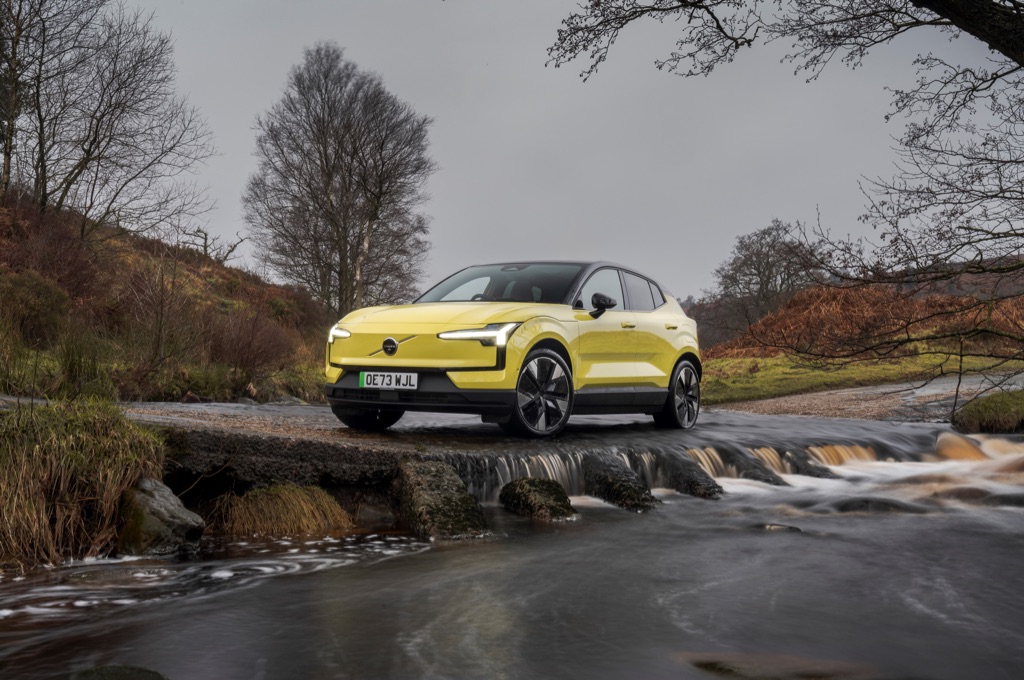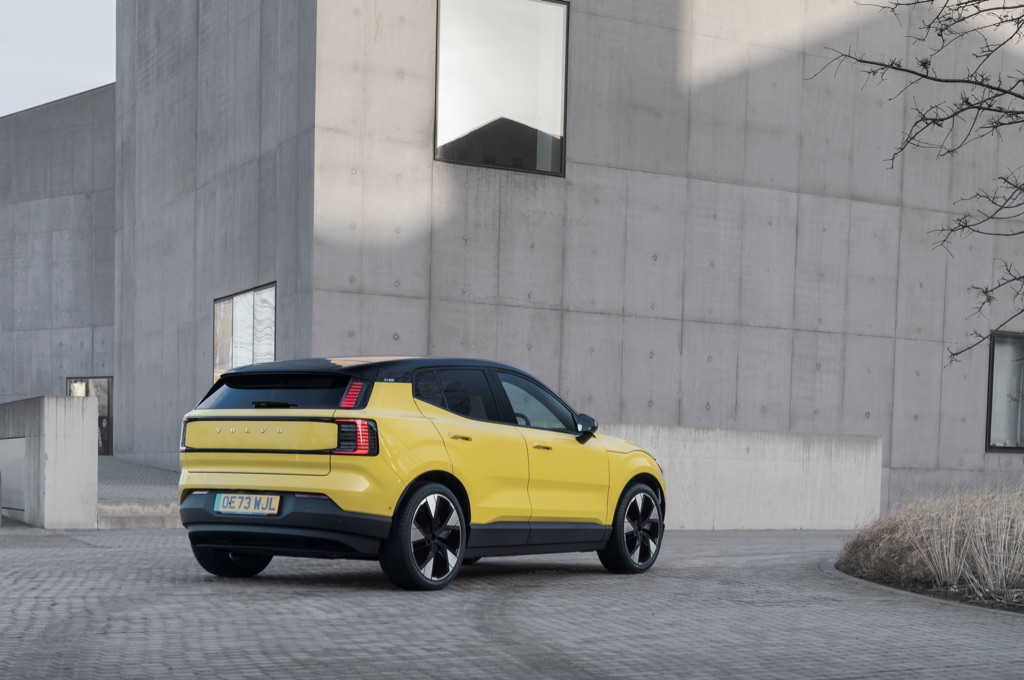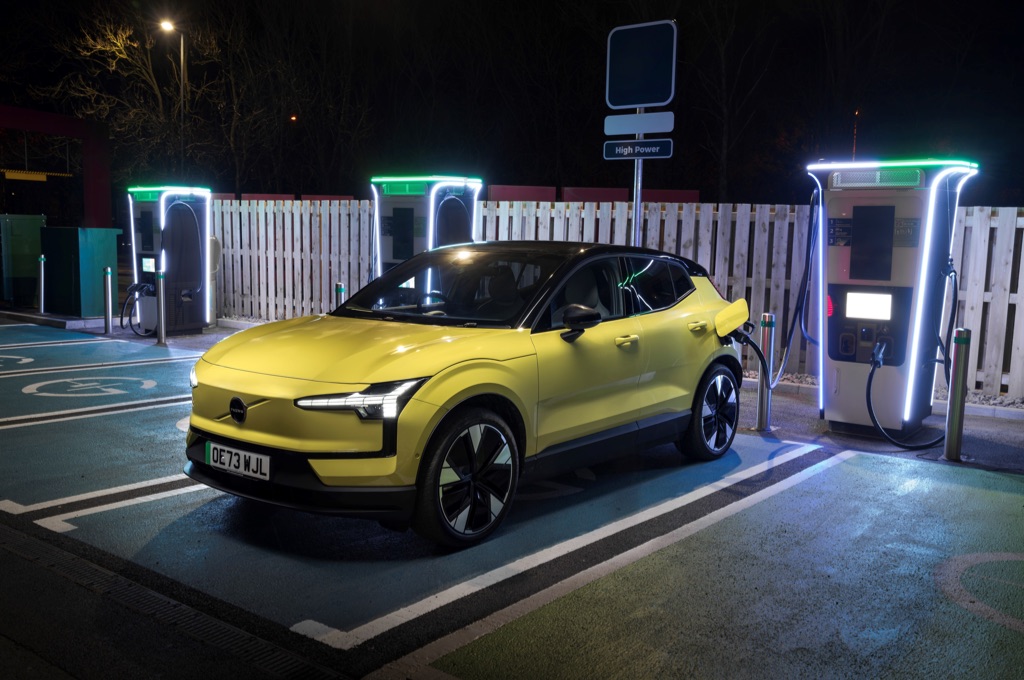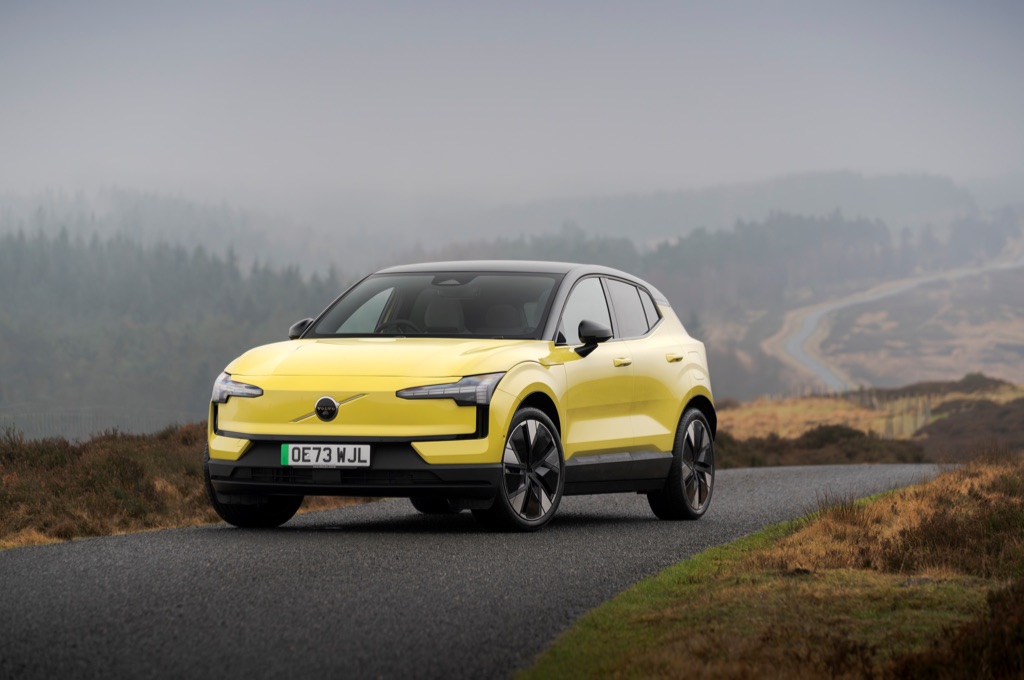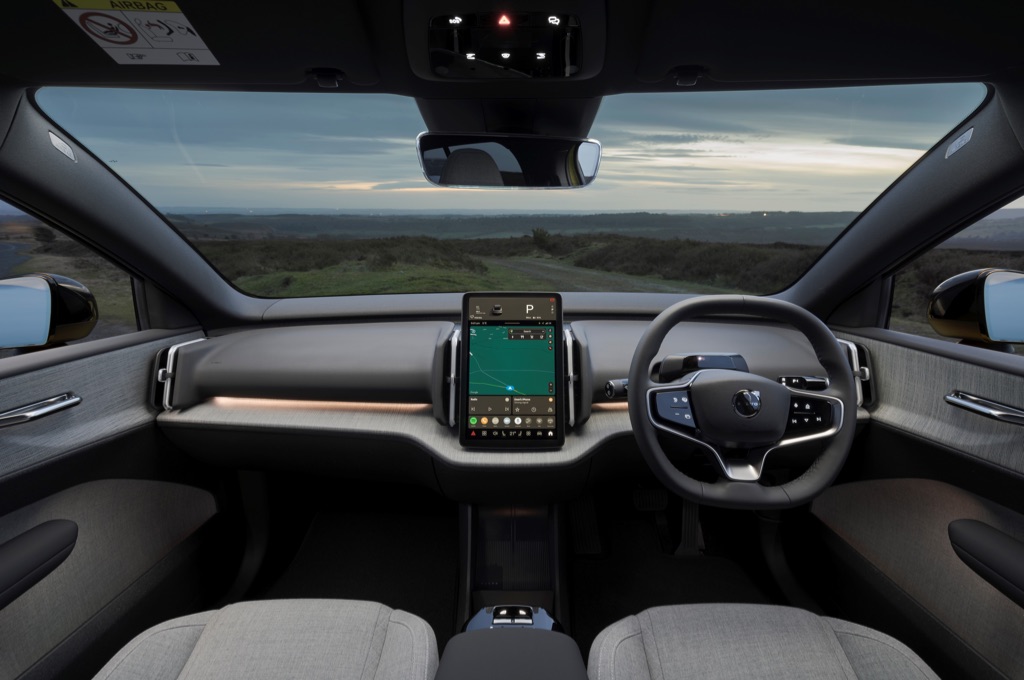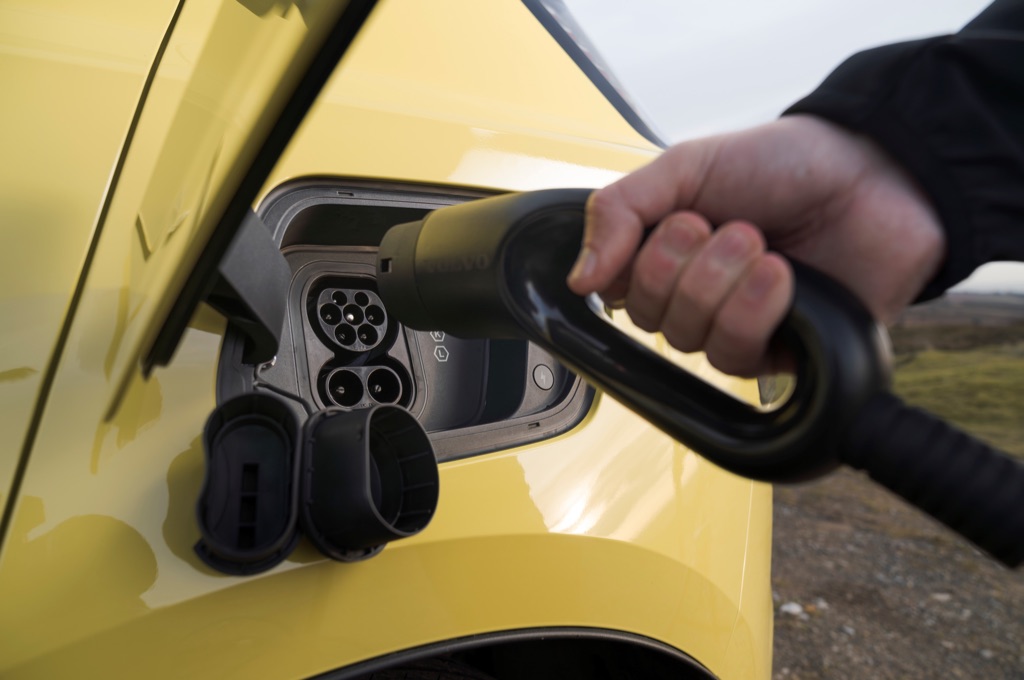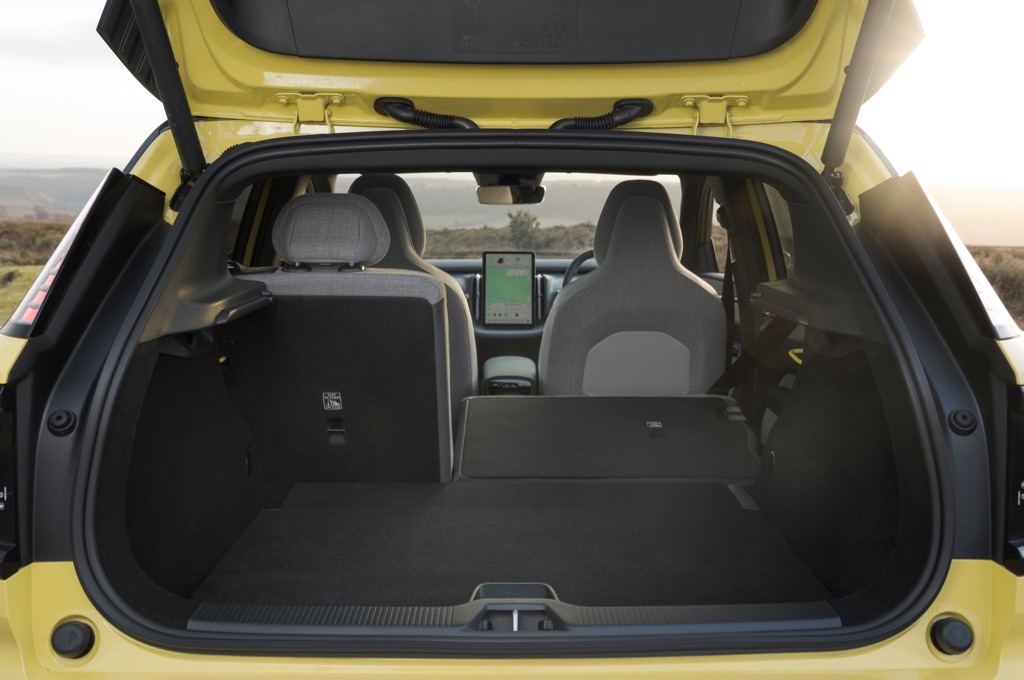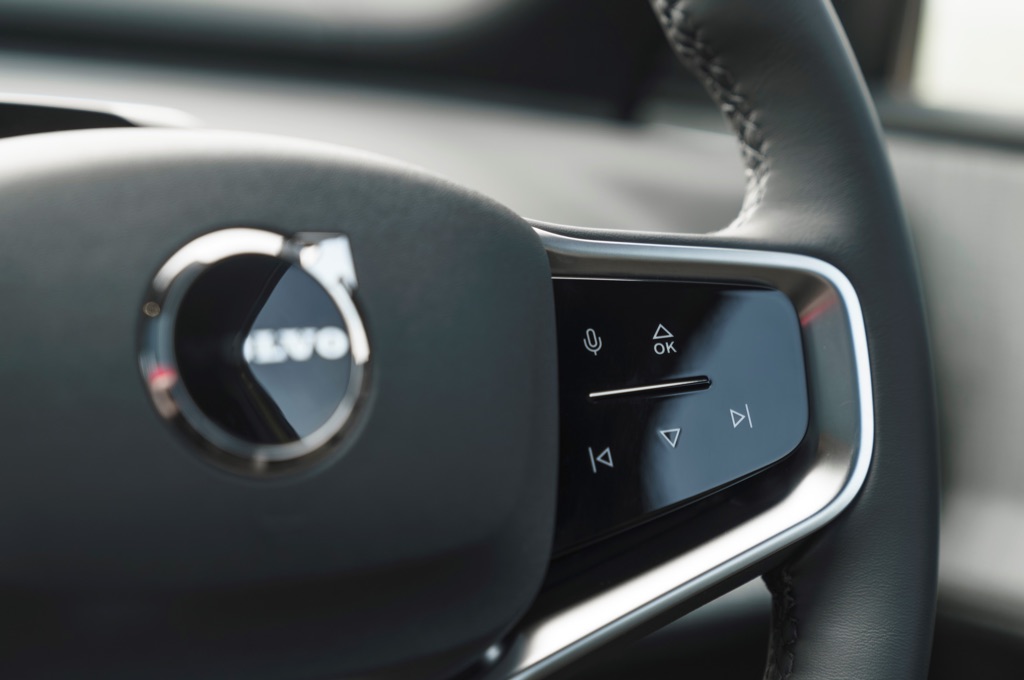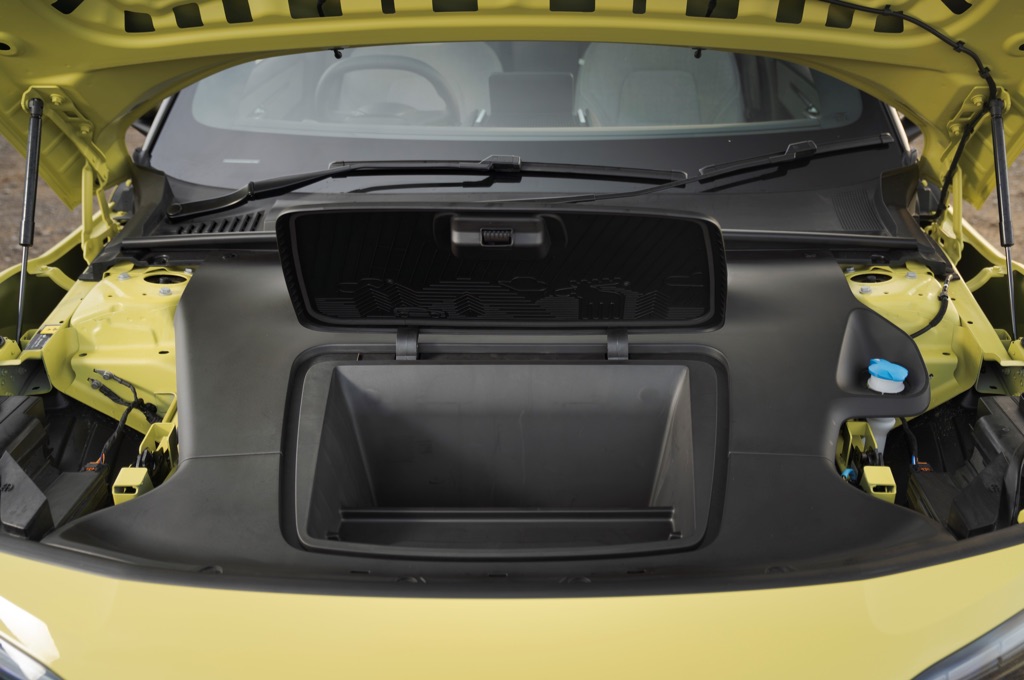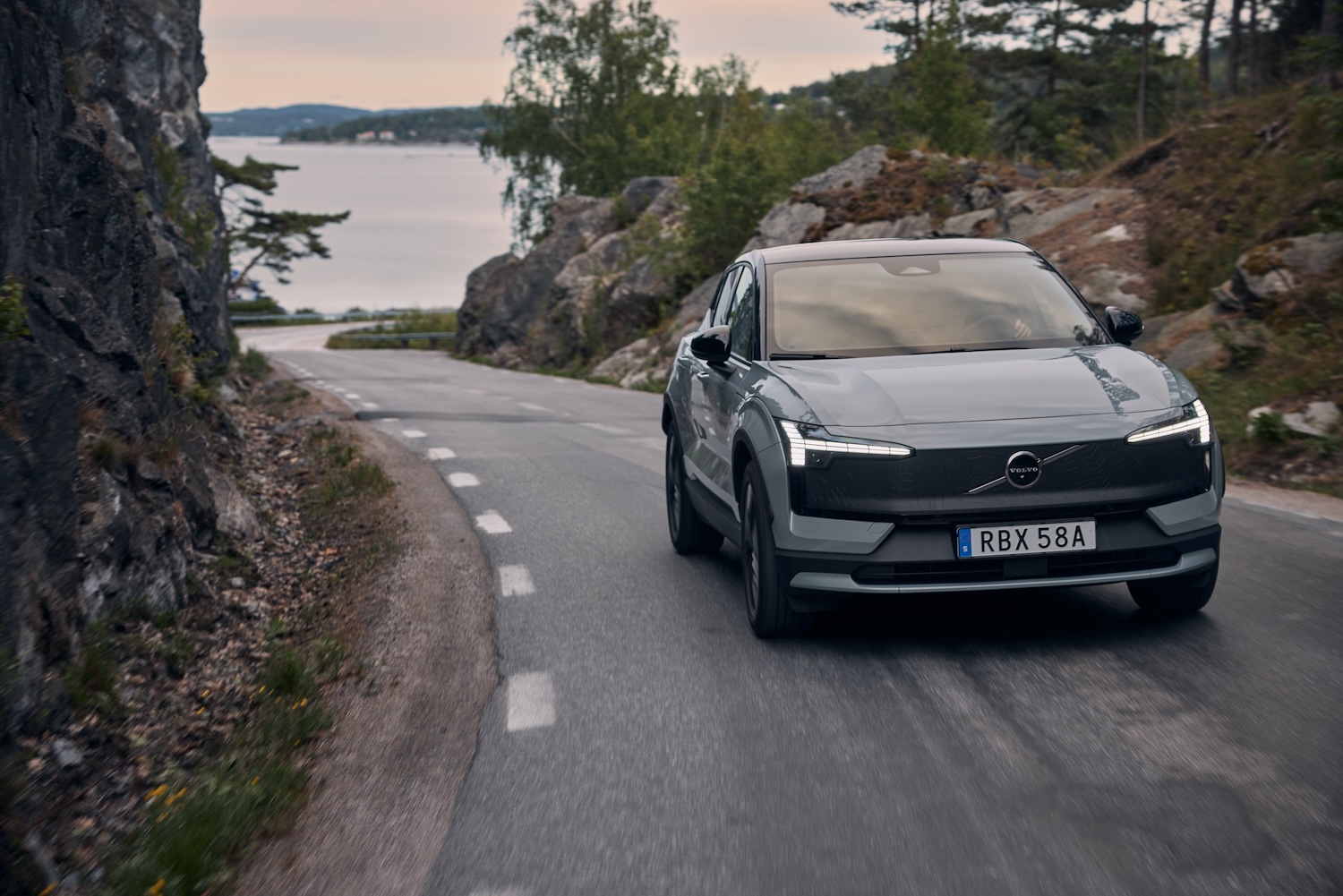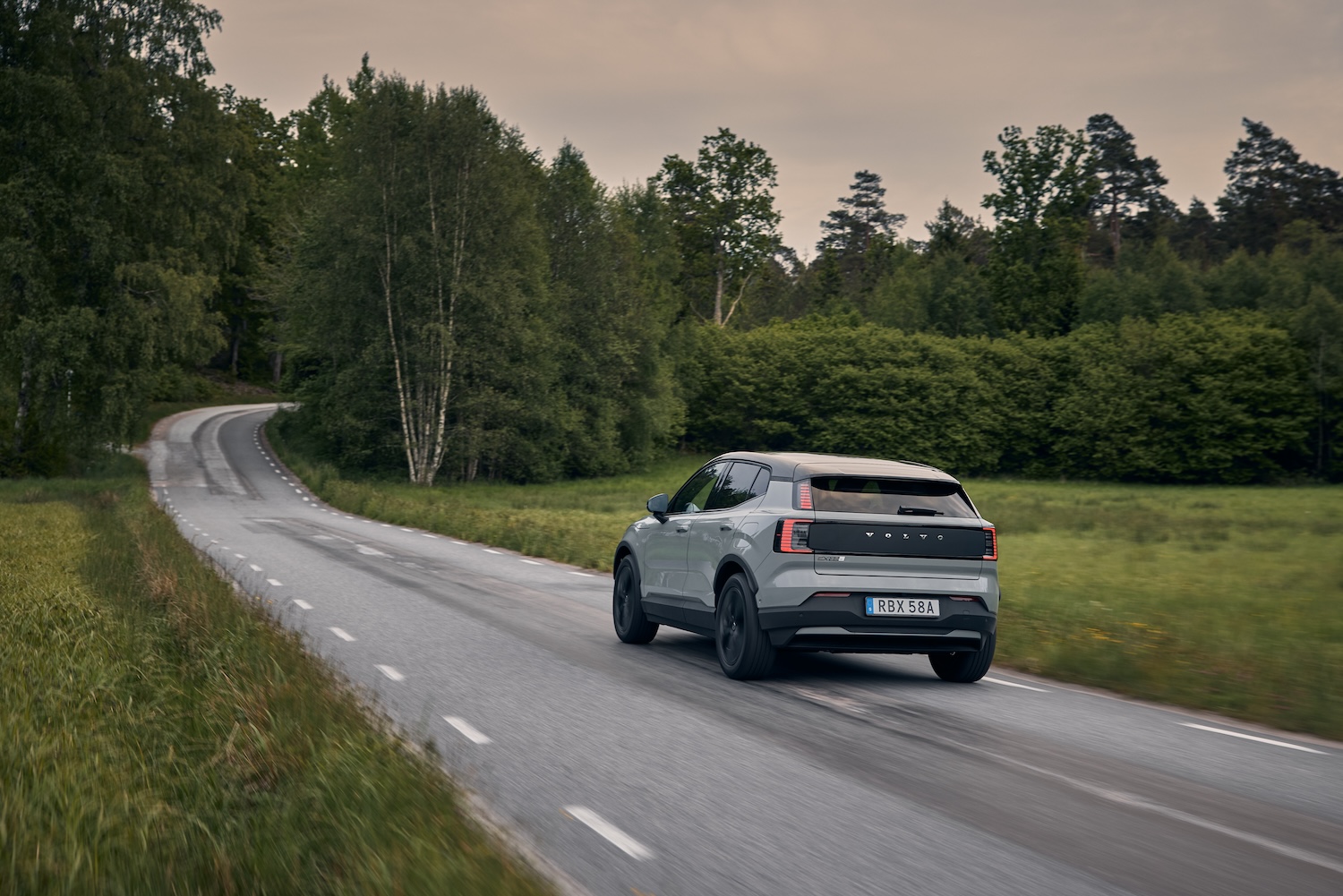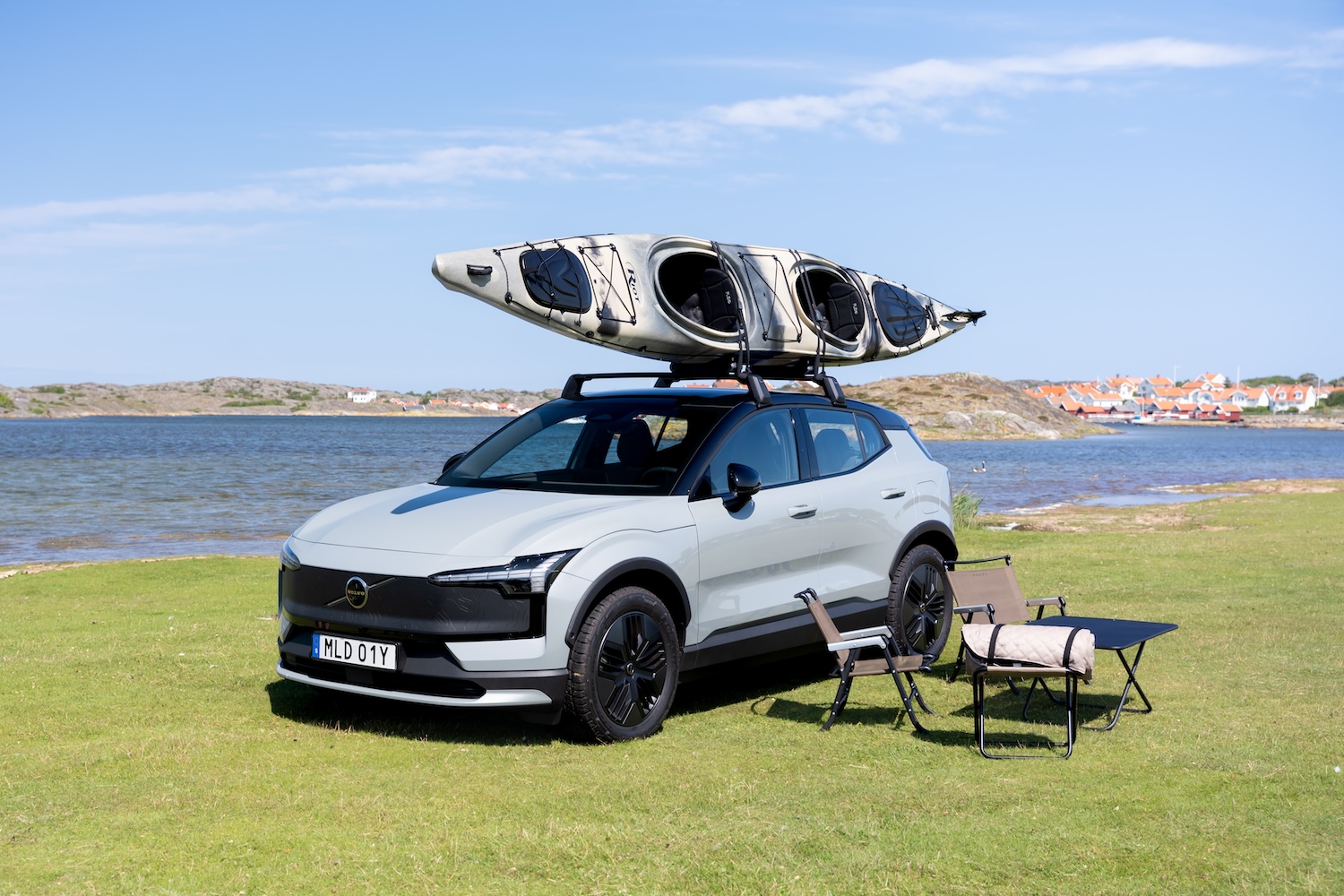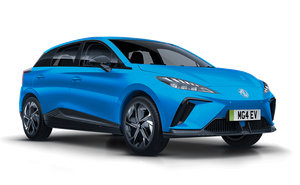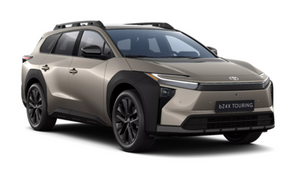Range
The Single Motor EX30 manages up to 209 miles official WLTP driving range, while the Extended Range Single Motor achieves 296 miles, and the Twin Motor Performance comes in at 280 miles. Meanwhile, the more ruggedly-styled Cross Country Twin Motor Performance has a 273-mile WLTP-tested range.
As for real-world range, the EX30 Single Motor will likely do around 140- to 170 miles in cold weather, while warmer weather will see the range climb up towards 200 miles. The Extended Range Single Motor will be more like 240- to 280 miles depending on the conditions, while the Twin Motor Performance will be a touch less than that. Every electric car will be less efficient on the motorway, and in cold weather, so you’ll see your best efficiency and range in summer.
Ultra trim – the higher of two available – gets a standard heat pump, for more efficient cold weather running. If you do want longer range for a similar price to the Volvo EX30, check out the Kia EV3 with it's 372 mile range.
Battery
The EX30 comes with two different battery options. The entry-level Single Motor EX30 uses a 49kWh usable-capacity, lithium iron phosphate (LFP) battery. LFP battery chemistry is cheaper and less resource-intensive to produce, but achieves fewer miles of range per kilogram of battery than the more efficient 64kWh lithium-ion NMC batteries used in the Extended Range EX30 models.
Both are very widely used, tried-and-tested battery technologies. You’ll find LFP batteries in the Tesla Model 3, MG4 and all BYD models, for instance, while NMC (nickel-manganese-cobalt) lithium-ion batteries are the most commonly used batteries in electric cars. Basically – don’t panic, they’re both reliable, and will probably outlive the car.
Every battery degrades, mind you, and it’s reasonable to see around 10-15% loss of performance over ten years. Avoid loads of rapid charging to keep the battery in good health.
Charging
Peak DC rapid-charging rates top out at 134kW for the 49kWh Single Motor EX30, while the bigger battery models will max out at 153kW. That’s not a big difference in the real world, at all, and it means that you’ll get a 100 mile top-up in around 15 minutes, while an 80% charge is achievable in under 30 minutes even if you’ve got the bigger, 64kWh battery pack to charge.
Thanks to the EX30’s Android-based system, Google maps will automatically find you a charger when you’re running low and then take you to it while the car preconditions the battery to the right temperature so that you get the best possible charging speeds.
Lower-spec Pure models get 11kW AC on-board charging, while Ultra models get 22kW. You’ll need access to a three-phase charger to take advantage of either of those charging speeds, though, and most owners will charge at a 7kW home charger for a full charge in around six- to eight hours.









